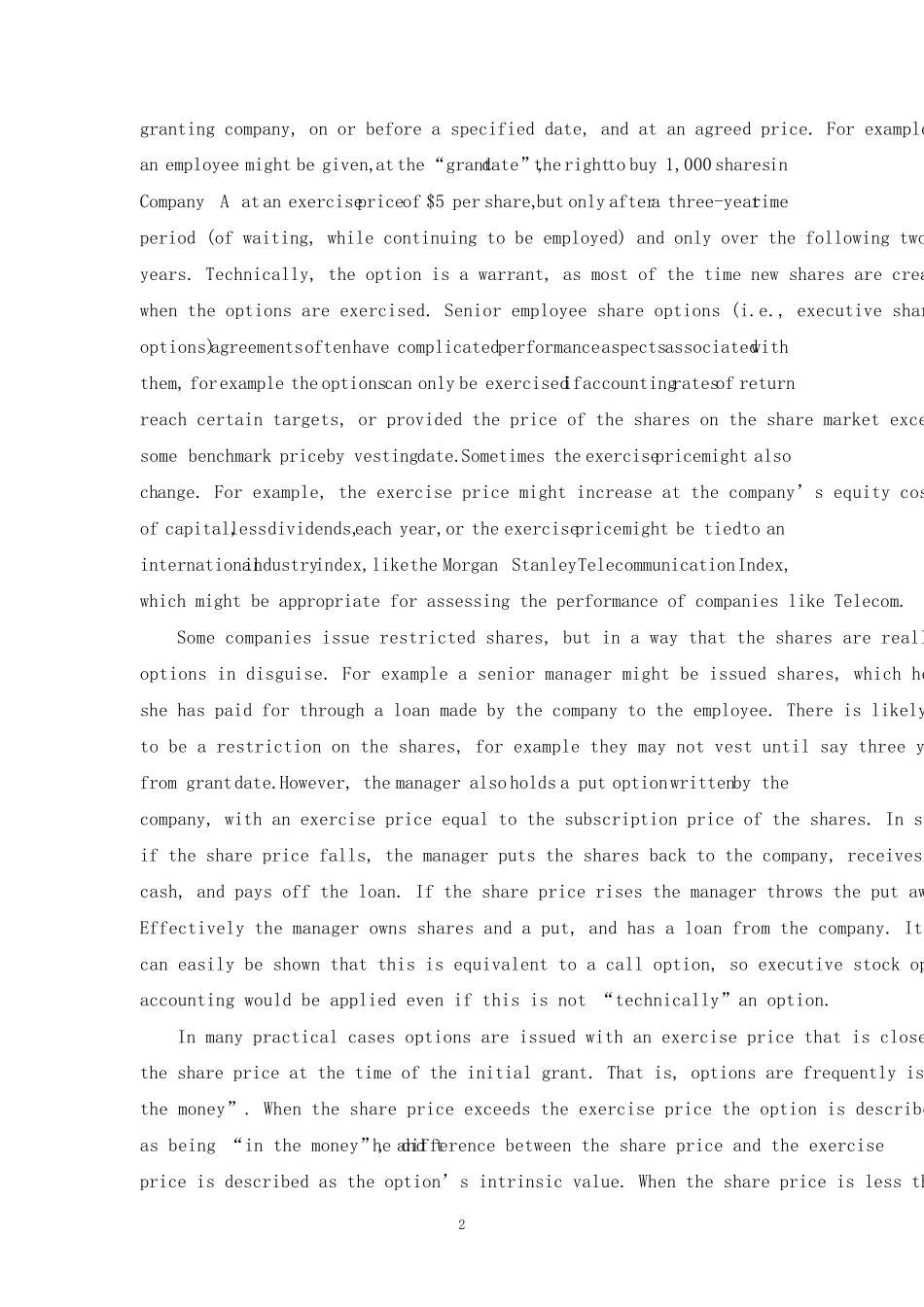1 外 文 翻 译 外 文 题 目 Accounting for share-based payment under NZ IFRS2 外 文 出 处 University of Auckland business review,spring2005, Vol,issue2,p39-46 外 文 作 者 David Emanuel 原 文 : Accounting for share-based payments under NZ IFRS-2 In essence this Standard deals with three primary issues. The first is where “ payment” is by the issue of shares or other forms of instrument. The second is where there is a cash payment, but the amount is derived from share values or a change in share values. And the third is where the provider of goods or services to an entity has a choice about whether he or she gets paid in cash or shares. As a practical matter, the major effect of this standard is on remuneration. Employees may receive part of their remuneration in restricted shares, share appreciation rights, or via share options. In the case of restricted shares the employee may not have to pay “ fair value” for the shares. Schemes based on share appreciation involve the employee (eventually) receiving cash that is tied to changes in share prices. In the case of share options, the normal arrangement is that no money is exchanged when the option is granted, and if the option is exercised the grantee (i.e., the employee) pays the exercise price for the new shares that are issued. This article concentrates on the share option accounting, as share options are an international and pervasive form of remuneration, because share options have come in for some criticism, and options involve the use of equity instruments. It is important to note at the outset that some share-based payment schemes will involve the recognition of a liability, rather than the recognition of an item that a...

